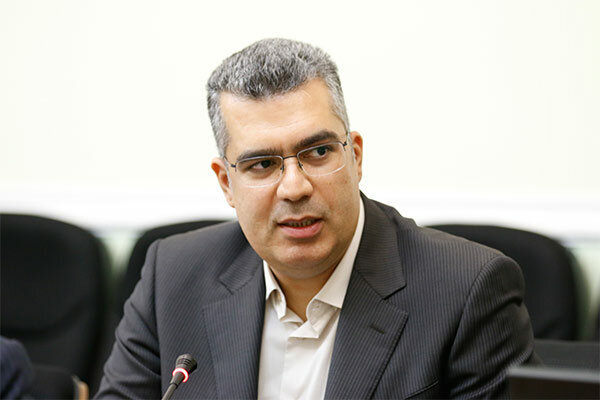
CGT bill to be submitted to cabinet in a week

Mohammad-Ali Dehqan Dehnavi said, “National Tax Administration has delayed preparing the mentioned bill for two weeks; and now we are trying in the ministry to finalize it as soon as possible so that it could be submitted to the cabinet by the end of the current month”.
In order to reduce intention for investment making in non-productive sectors, many countries impose capital gains tax (CGT) which is a tax on capital gains with different rates of taxation for individuals and corporations.
While CGT prevents from the wealth to be owned just by a few people, it leads the liquidity toward production, and help re-distribution of wealth and income in the society.
CGT has come under the spotlight in Iran during the current Iranian calendar year (began on March 21), as the country is investigating different ways for a budget plan with no reliance on the oil income, and collecting taxes is one of the major ones.
The 17.03 quadrillion rials ($405 billion) budget bill for this Iranian year has envisaged 1.53 quadrillion rials (about $36.5 billion) of tax income.
Iranian Minister of Finance and Economic Affairs Farhad Dejpasand has said that reducing the current year’s budget dependency on oil exports is the most important economic objective in the country.
The minister has also stressed that an efficient tax system should be a priority in the government’s policy making, and put emphasis on the necessity of imposing capital gains tax.
Mohammadreza Pour-Ebrahimi, a member of the economic committee of Iranian parliament (Majlis), said on June 8 that new tax strategies should be taken and new taxes should be imposed in order to reduce the gap that is becoming larger and larger between the poor and the rich due to the effects of the fluctuations in the foreign currency exchange rate.
In this due Majlis has put approving the capital gains tax plan on agenda, he added.
A non-oil budget requires other stable income sources, and the government is considering tax on non-productive assets as one of the major sources in this regard, Pour-Ebrahimi said.
Not only is capital gains tax an effective instrument for establishment of fairness and economic quality, it can also help the government reduce reliance on oil revenues.


Trump weighs using $2 billion in CHIPS Act funding for critical minerals

Codelco cuts 2025 copper forecast after El Teniente mine collapse

Electra converts debt, launches $30M raise to jumpstart stalled cobalt refinery

Barrick’s Reko Diq in line for $410M ADB backing

Abcourt readies Sleeping Giant mill to pour first gold since 2014

Nevada army depot to serve as base for first US strategic minerals stockpile

SQM boosts lithium supply plans as prices flick higher

Viridis unveils 200Mt initial reserve for Brazil rare earth project

Tailings could meet much of US critical mineral demand – study

Kyrgyzstan kicks off underground gold mining at Kumtor

Kyrgyzstan kicks off underground gold mining at Kumtor

KoBold Metals granted lithium exploration rights in Congo

Freeport Indonesia to wrap up Gresik plant repairs by early September

Energy Fuels soars on Vulcan Elements partnership

Northern Dynasty sticks to proposal in battle to lift Pebble mine veto

Giustra-backed mining firm teams up with informal miners in Colombia

Critical Metals signs agreement to supply rare earth to US government-funded facility

China extends rare earth controls to imported material

Galan Lithium proceeds with $13M financing for Argentina project

Kyrgyzstan kicks off underground gold mining at Kumtor

Freeport Indonesia to wrap up Gresik plant repairs by early September

Energy Fuels soars on Vulcan Elements partnership

Northern Dynasty sticks to proposal in battle to lift Pebble mine veto

Giustra-backed mining firm teams up with informal miners in Colombia

Critical Metals signs agreement to supply rare earth to US government-funded facility

China extends rare earth controls to imported material

Galan Lithium proceeds with $13M financing for Argentina project

Silver price touches $39 as market weighs rate cut outlook

















